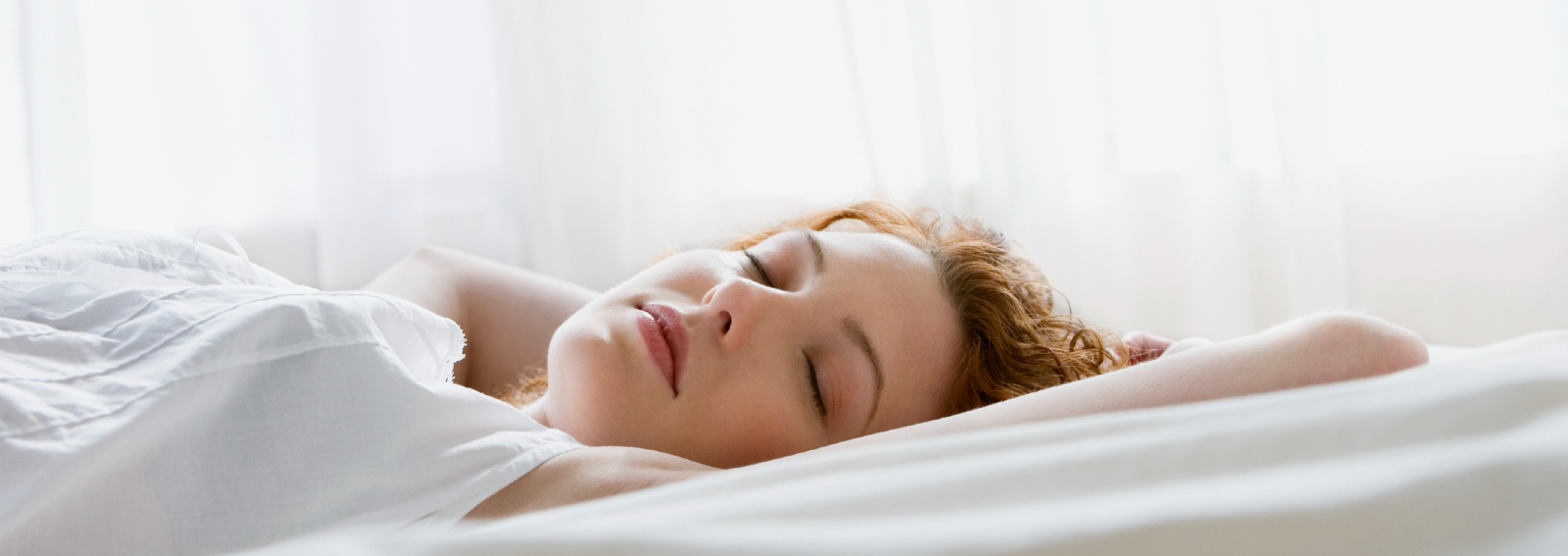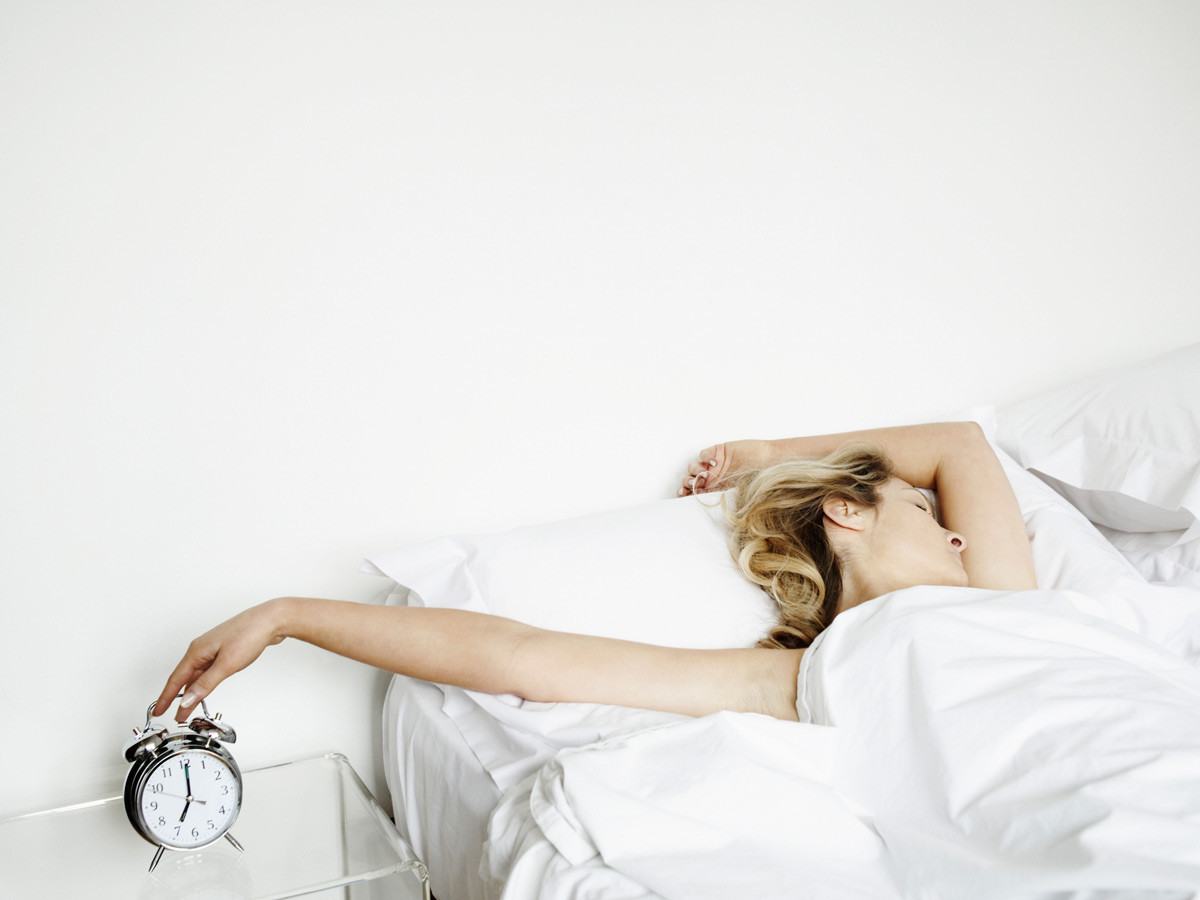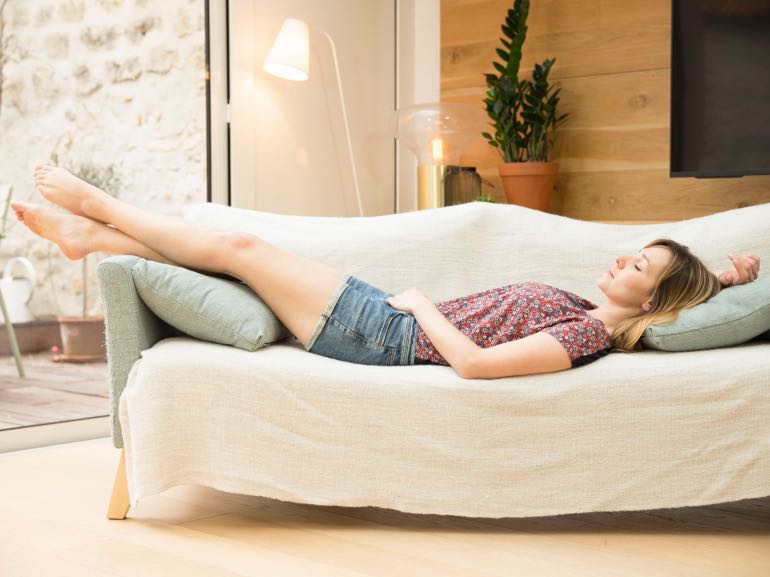

We know very well the reasons why we don’t sleep well.
Packed schedules, daily marathons to reach the office, running like Usain Bolt to not miss the train, juggling work-family-social life-appointments: by the end of the day, fatigue is always present, but despite everything, it is often difficult to fall asleep. We toss and turn under the covers and wake up continuously.
Result? When the alarm rings, we think, “No, it’s not possible, I just went to bed,” and – inevitably – we get up more tired than before.
What if our poor eating and behavioral habits are ruining our rest?
Few people realize that what we eat for dinner and what we do before going to bed influence the duration and quality of sleep.
Here, then, are the rules to follow to fall asleep quickly and sleep well.

To sleep well, do not fast or overeat
“Melius est abundare quam deficere,” said the Latins, thinking that abundance was always better than moderation.
No way, in this case, we have to contradict our ancestors: those who suffer from insomnia cannot afford to eat as if the end of the world is imminent.
If you overdo the quantities, in fact, you risk sleeping poorly and little due to slow and bad digestion.
The same fate for those who, on the contrary, decide to fast and skip the evening meal: on an empty stomach, it is difficult to fall asleep.
Not only that: at night, you can wake up starving, with cramps and growls.
What not to eat before going to bed
Those who have trouble falling asleep or have disturbed sleep should avoid consuming, during dinner, the quintessential stimulating foods such as coffee, tea, cocoa, and chocolate, which activate the wake centers and prevent, in those already predisposed, from sleeping peacefully.
To avoid slowing down digestion, which is often the primary cause of sleep disorders, stay away from animal fats (firstly red meat), salty foods (such as chips), and industrial dishes (ready-made sauces, bouillon cubes, snacks, microwave lasagna).
To digest these foods, the gastrointestinal tract must work harder and for a long time, often interfering with nighttime rest.
Don’t go to bed if digestion is ongoing
You eat, load the dishwasher, and jump into bed in no time, overwhelmed by fatigue. Nothing could be more wrong!
Do you like to dine early? You are right! Dining late is not a good idea.
Why Late-Night Eating Disrupts Your Sleep
From when you get up from the table to when you slip under the covers, at least three hours should pass: this way, digestion has all the necessary time to work correctly without creating hitches or ruining sleep.
You should also try to be as regular as possible: the ideal would be to respect the time you go to sleep and the time you wake up in the morning, weekends included (at most, you can deviate by a few hours).
This way, you teach your body the right rhythm, tailored to your needs, to ensure that rest is linear and constant.

If you want to sleep well, fill up on tryptophan at dinner
Generally, at dinner, it is thought better to limit carbohydrates to avoid risking a larger waistline.
However, those who suffer from sleep disorders can try to incorporate pasta, rice, bread, and barley into their evening diet, at least 2–3 times a week.
What is so important about these foods? Tryptophan, a substance that activates the production of serotonin, the hormone that promotes muscle relaxation, stimulates psycho-physical well-being, and improves sleep quality.
Disconnect your brain
One last look at emails, a quick message on WhatsApp, a visit to Instagram: when in bed, before turning off the light, the temptation to fiddle with the smartphone is always very strong and often hard to resist.
Wrong, very wrong. Using electronic devices excessively stimulates our cognitive functions, keeping the brain active even when we are about to sleep.
The bright screens of tablets, PCs, and cell phones also play a dirty trick because they delay the secretion of some substances, like melatonin, which are essential for falling asleep.
The ideal would be to disconnect from the world at least 2–3 hours before going to bed so that brain activities are not continuously stimulated and have the chance to slow down their rhythm.
Horror movies? No, thank you!
Avoid watching Dario Argento movies, creepy clowns, and haunted houses. If sleep is disturbed, full of interruptions and half-sleep states, these scary, stressful, and exciting programs excessively stimulate brain functions and affect the quality of rest.
In short, more comedies for everyone!
Green light to sedative herbal teas
You can knock out insomnia, even with remedies that nature provides.
When the disorder is mild and temporary, you can opt for chamomile, whose classic bags can be bought at the supermarket or the characteristic white and yellow flowers in herbal stores to prepare an infusion. Note: for it to be effective, the drink must be hot, not warm.
Valerian, an extremely relaxing plant, is even more potent than chamomile and can be helpful when insomnia is associated with anxiety.
The infusion can be prepared with convenient bags or with the dried root (found in herbal stores). The only contraindication: never take it with alcoholic beverages.
Finally, passionflower is also an excellent ally for sleep thanks to its relaxing properties. In herbal stores, you can buy the leaves to prepare a hot infusion to drink shortly before going to bed.
This article first appeared on Grazia.it – Author: Chiara Caretoni












